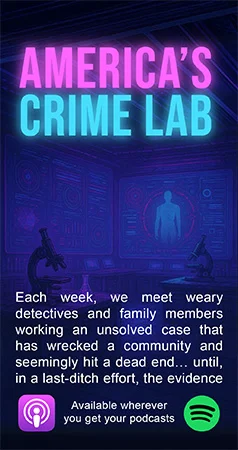AZlawyer
Verified Attorney
- Joined
- Oct 1, 2008
- Messages
- 7,883
- Reaction score
- 2,123
AZL, how does it work at the appellate level for the DT now? Now we're into more of the traditional appeal situation vs special actions. Say KN and JW want to take these 17 smackdowns and write up for each one how they think the judge was off her rocker and they should overrule her. How does it work?
- Do they file 17 different appeals? Do they file 1 with everything? Or do they pick a few that they think they have the best shot at?
- Does each appeal consist of only some relatively small amount of paperwork and copies of transcripts and exhibits?
- Do they also need to cite relevant settled case law to back their argument up?
- Ignoring stays, can the COA just refuse to hear the appeal, letting the lower court ruling stand, or do they have to issue more than that in each case?
- If there are to be oral arguments, I presume they have to be short and to the point, like the earlier ones. (Those were all short, but not necessarily all to the point haha.)
- What is the COA's take going in? Is their attitude along the lines of "We've got what you sent and we've read the judge's decision. You have 15 minutes to convince us that her logic was flawed."
Thanks - you can see what I'm getting at. It seems like the same sorts of things that a trial like this encourages from the defense: obfuscation, inept/lying witnesses, arguments all over the map/contradictory, time-wasting, interrupting the other party endlessly, etc. all are exactly the wrong approach to use on appeal. I suppose that's why there are people like you who specialize in appeals - you don't have to change gears for appeals since you operate in the right gear already. It might be a struggle for you to handle a normal case in a regular court for similar reasons - it's just a different way of operating.
The time to appeal has not started yet. They can file a special action if they want--one, because there was one order that they would be challenging. IMO there is a 99.999% chance of denial at this stage. These issues will be decided on appeal after sentencing. Everything will be filed in one appeal except the ineffective assistance of counsel argument (inevitable), which is decided through a separate procedure called "post-conviction relief."
If there is a death sentence, far more issues will be taken up on appeal than if there is a life sentence. Also, if there's a death sentence, it will go straight to the AZ Supreme Court and the assigned judge's law clerks will go through literally everything looking for any serious appeal issue that was missed. (I know because I did it for a year lol. And found ONE big missed issue in ONE case.)
Appellate briefs are normally fairly short in AZ (like 20-30 pages--I know, I know, you're like, SHORT?) but in a case like this will likely be longer. The entire record will be transmitted to the appellate court electronically, but they will only look at everything if, as I mentioned above, it's a DP case. Yes, case law/statutes must be cited, and specific references to the record (transcripts, exhibits) must be included. None of this "the prosecutor badgers the witnesses"--you have to cite page and line numbers in the transcript.
Whichever court gets the appeal (depending on whether it's a death case) has to take it. (This is not the case with a special action FYI.) Technically, the court can just say "affirmed," but in a serious criminal case they won't do that.
Oral arguments will likely be 30 minutes per side.
I don't think the Ct App or AZ Supreme Court would waste much time worrying about the particular decision that was issued today. It was a pretty easy call to be honest, once you got past the sheer volume of accusations.
I do jury (and non-jury) trials as well, but I do prefer appellate courts because (1) the judges are super-smart and (2) juries are unpredictable.


